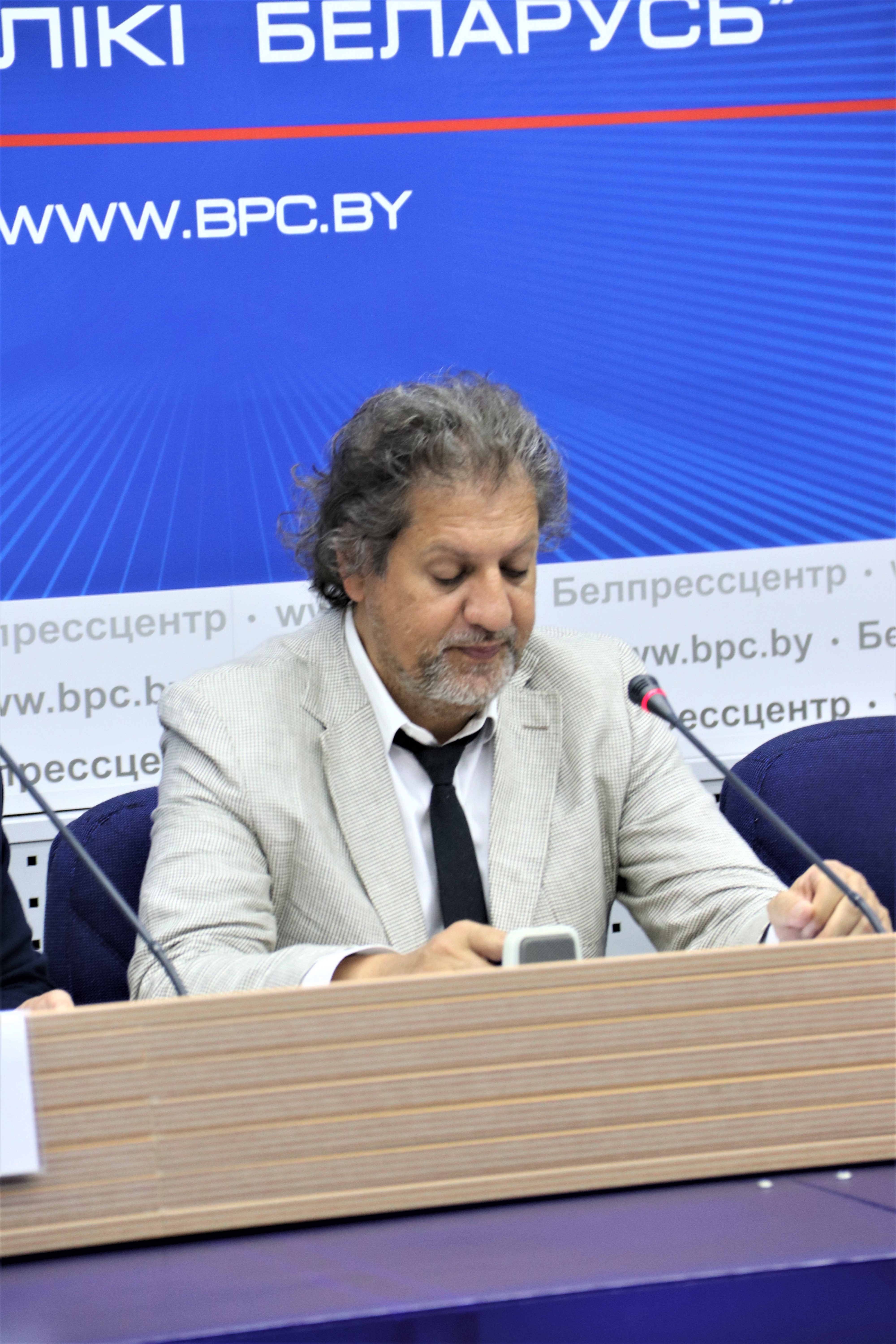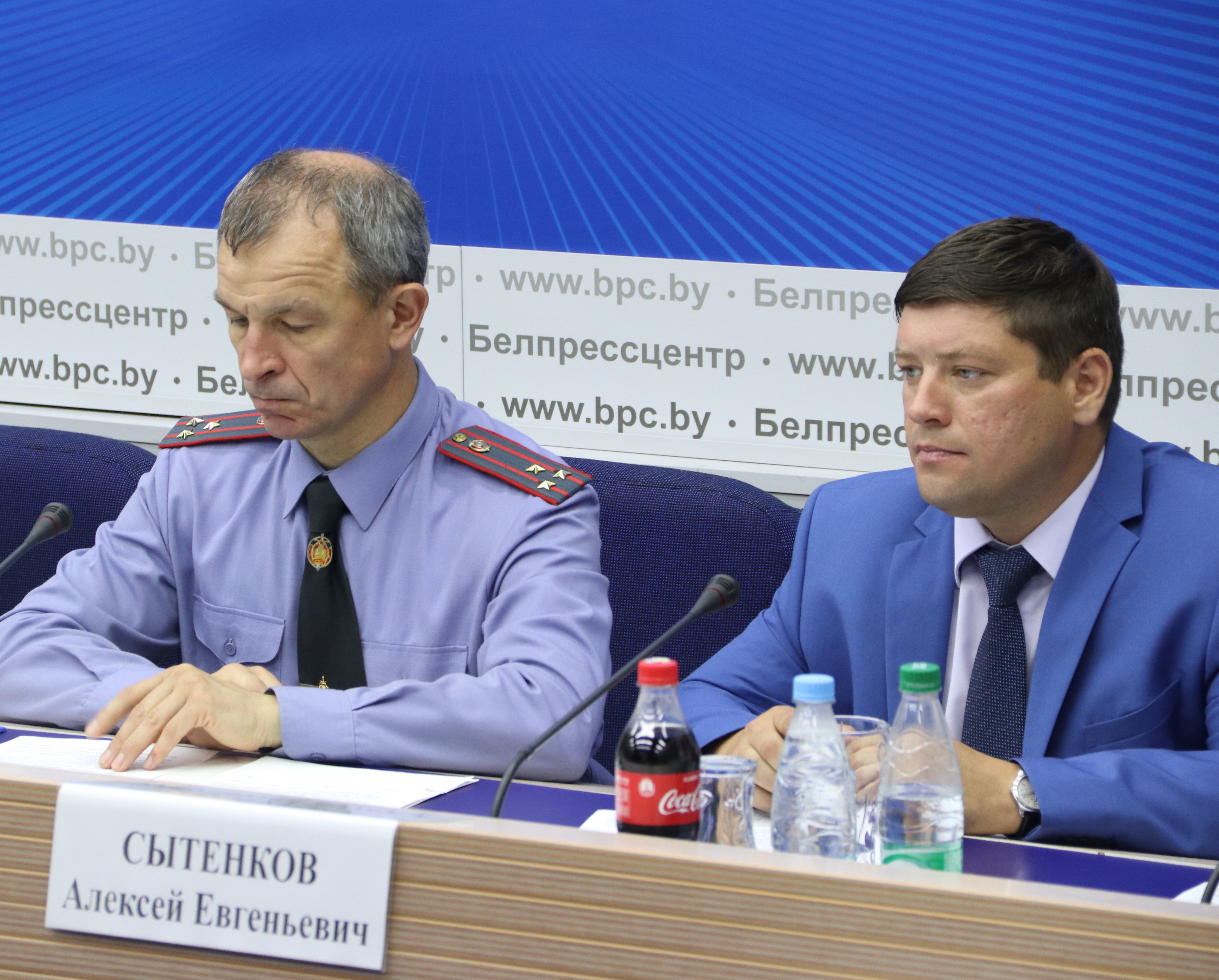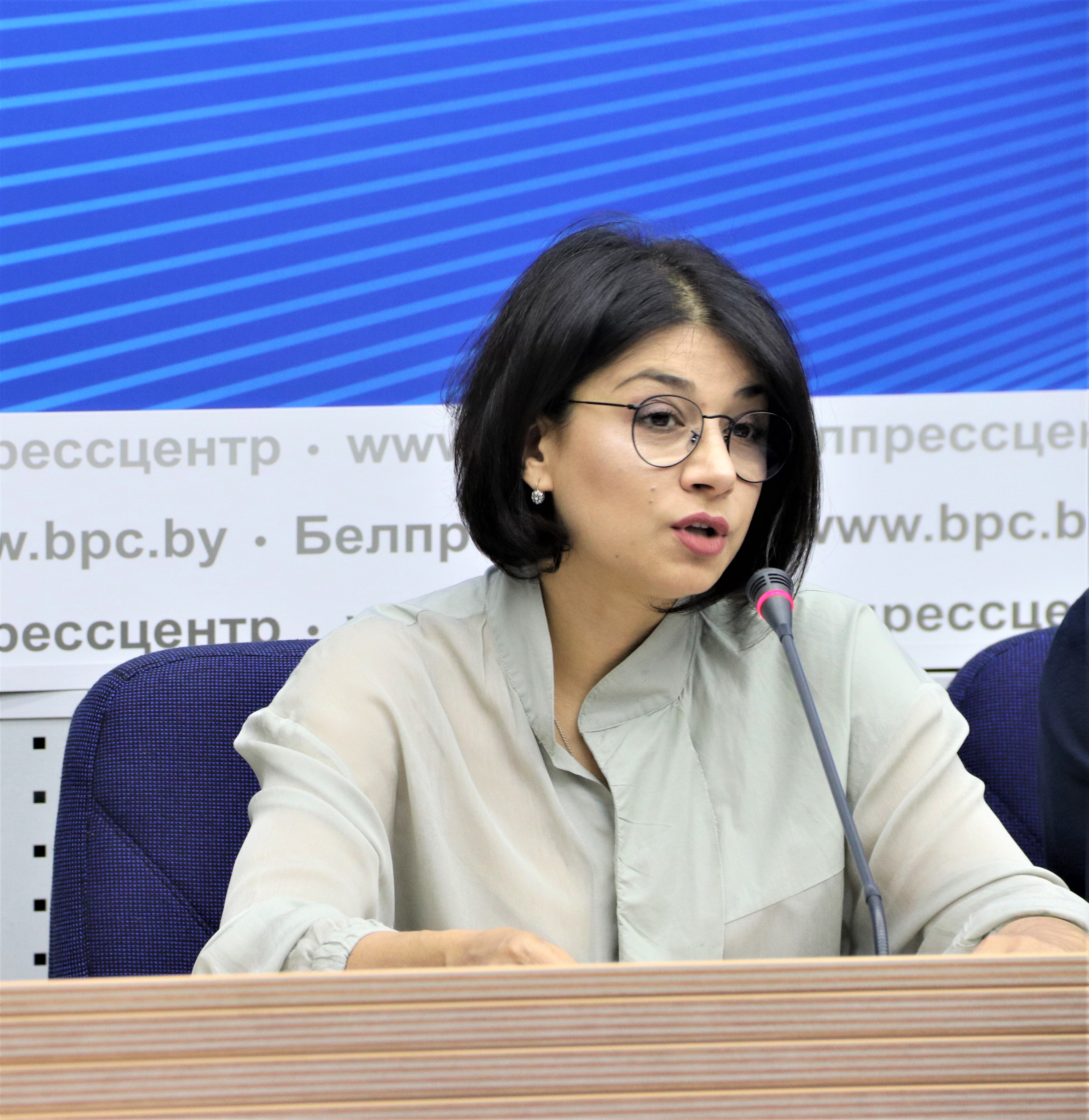The situation with forced migrants and stateless persons today is acquiring a new format. Protecting and ensuring full-fledged living conditions for refugees and stateless persons in a foreign country require not only medical, financial or educational assistance. The legislative side of the migration process also needs legal regulation.
These and other issues were discussed by the Representative of the UN High Commissioner for Refugees Jean-Yves Bouchardy, Head of the Department of Citizenship and Migration of the Ministry of Internal Affairs of Belarus Alexey Begun, Deputy Head of the Office of Preliminary Investigation and Legal Support of the State Border Committee of the Republic of Belarus Alexey Sytenkov and UNHCR Goodwill Ambassador in the Republic of Belarus Iskui Abalyan.

Jean-Yves Bouchardy: I remain extremely grateful to the Government and people of Belarus for receiving and supporting forcibly displaced persons – whether it’s in schools, neighborhoods, or workplaces. Every part of society has a role to play. Whether you are with the media, education, business, state or NGO sectors, I encourage you to do something to stand with refugees on World Refugee Day and every other day of the year. It can be something as simple as putting your name under UNHCR’s #WithRefugees petition available on our website.
By doing so, you manifest your support of giving forcibly displaced people the chance to realize their potential, and be able to return home when the time is right, or build new lives elsewhere. To people who lost everything and have nothing. Children, women, elderly and most vulnerable among them. But of course more needs to be done. On World Refugee day and always, we stand together #WithRefugees. Please, stand with us. No step is too small. If we all take a stand with people forced to flee together we can make a world of difference.

Alexey Begun: I want to note that the national asylum system in the Republic is based on the internationally recognized concept of protection. Asylum seekers are guaranteed access to the relevant procedures for receiving and consideration of their applications for protection. The convention principle of non-refoulement is fully respected, a foreigner cannot be returned and sent to the territory of a state where his life or freedom is in danger. In this regard, I would like to note the contribution to the work with forced migrants of our main partners in this field. This is primarily the State Border Committee, the Office of the United Nations High Commissioner for Refugees, the Office of the International Organization for Migration, as well as a number of public organizations that also participate in solving the problems of forced migrants in the Republic of Belarus.
Alexey Sytenkov: Considering our geographical location, the shortest way from the East to the West, border guards in their work are increasingly forced to encounter individuals who, in search of better living conditions, tend to countries with a prosperous working and social climate. In this regard, we are faced not only with such a phenomenon as illegal migration, but more and more often we have to meet at checkpoints people who come to our territory and apply for protection in the Republic of Belarus. It should be noted that, based on the events taking place in the world, our state does not remain aloof from such phenomena as the problem of refugees. Only close work of all entities involved in the field of forced migration will help control the situation not only at the border, but also in the country, to provide all possible assistance to people in difficult life situations.

Iskui Abalyan: My collaboration with UNHCR has been going on for more than 5 years. UNHCR #IBelong global campaign to eradicate statelessness continues the same way. The campaign started in 2014 and is designed for 10 years. Therefore, this year is special, it marks the fifth anniversary of the campaign. UNHCR, state authorities and public organizations are working to help refugees and stateless people live a full life in Belarus.
It is important to remember that extending a helping hand can each of us. And today, at this press conference which has already become a tradition, I would like to remind you that no one chooses to be a refugee. But we can choose how to help them. Thanks!
Also, UNHCR representatives and government agencies spoke about programs implemented in the areas of forced migration and statelessness. In addition, Jean-Yves Bouchardy noted that there is a project called Asylum Systems Quality Initiative in Eastern Europe and South Caucasus that aims to improve asylum space in Belarus and in the region.
It is done through building the capacity of professionals of state authorities from countries in our region such as Armenia, Azerbaijan, Belarus, Georgia, Moldova, and Ukraine.
I am proud that this year in cooperation with the Belarusian Red Cross and with the support of the U.S. Embassy in Belarus we successfully opened a Crisis room for victims of sexual and gender-based violence in Grodno.
Furthermore, in 2019 UNHCR in cooperation with the Belarusian Red Cross and with the support of the U.S. Embassy in Belarus successfully opened a Crisis room for victims of sexual and gender-based violence in Grodno.
Alexey Begun mentioned about temporary accommodation centers in Gomel, Vitebsk and Grodno for persons submitting applications for refugee status or subsidiary protection.
According to Jean-Yves Bouchardy, in 2017–2018. UNHCR conducted a detailed comparative analysis of the Belarusian legislation regarding the two UN conventions on statelessness. He expressed the hope that the Republic of Belarus will ultimately take a positive decision on the issue of acceding to these international treaties. Moreover, he noted that to mark the middle of this decade, a high-level event on statelessness will be held in Geneva in October 2019 at the annual meeting of the UNHCR Executive Committee, at which states will be able to announce the implementation of statelessness eradication programs.
At the end of the press conference, the journalists had the opportunity to ask their questions regarding the issues of forced migration, refugees and statelessness.
Full video of the press-conference can be found here.
http://www.evolutio.info/en/news-en-menu/2019-06-18?layout=default&print=1&tmpl=component#sigProId96c7bbab3f
